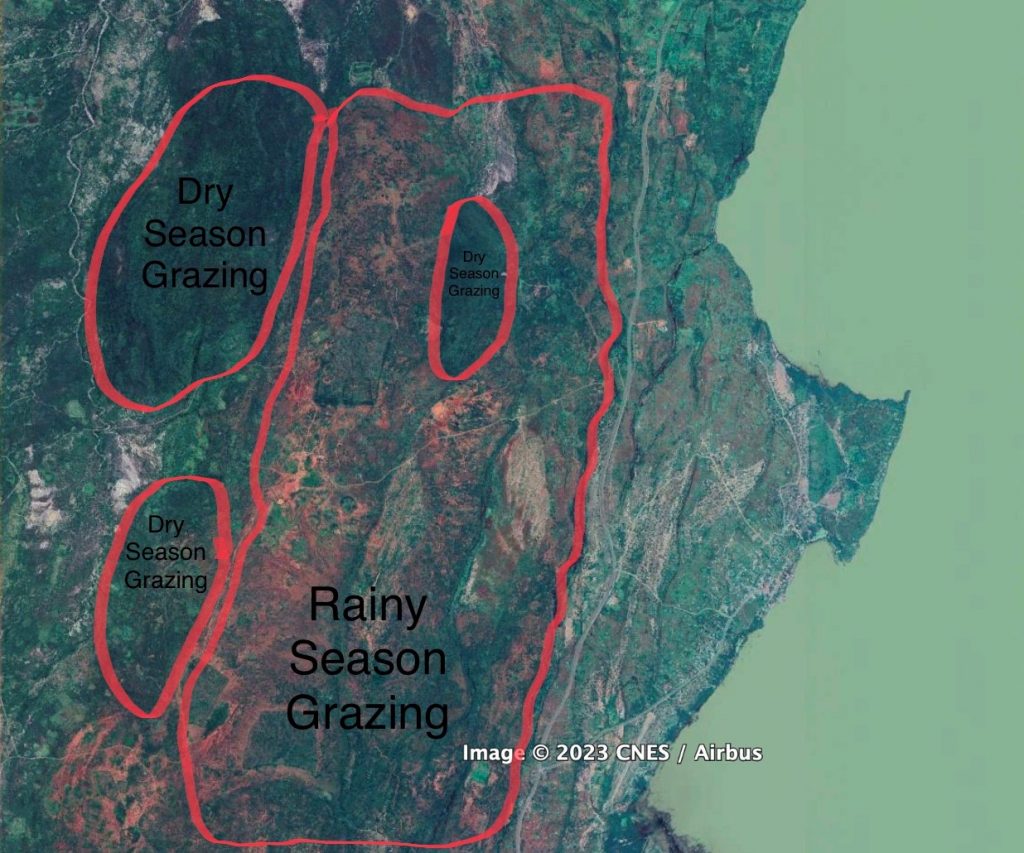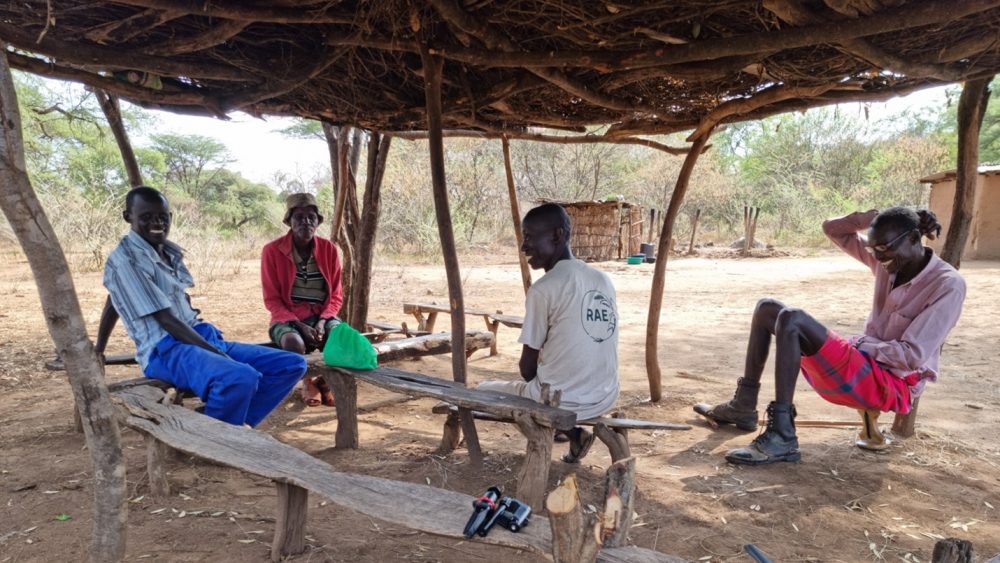The disappearing knowledge systems of pastoralist elders in Northern Kenya
Posted on 18 January 2023 by Billy Jones (PhD Candidate in Ethnology, Agenda 2030 Graduate School)
The views expressed in this publication are those of the authors and do not necessarily represent those of the Agenda 2030 Graduate School or Lund University. The present document is being issued without formal editing.
I recently came back from a fieldtrip to Northern Kenya where I was interviewing pastoralist elders (“wazee” in Swahili) on the environmental and cultural impact of climate change. I’ve been hearing about how, in just one lifetime modernity, climate change and overpopulation have flipped their world upside down. Desertification and land degradation are now commonplace across Northern Kenya. The Sustainable Development Goals (SDGs) aim to reverse this situation by creating solutions that are environmentally, socially, and economically sustainable by 2030.
Elders traditionally played a crucial role in sustainably managing resources and maintaining the local environment. But they are gradually being replaced by modern technology. With this change, an entire body of knowledge about the environment and sustainable land management practices is being lost. Achieving the SDGs and reversing desertification in dryland areas like Northern Kenya calls for innovative solutions that work for both people and the environment. The elders, with their disappearing knowledge, may just hold the answers we’re looking for.
Pastoralism as a way of life relies on the abundance of grass to feed livestock. Up until the 1970s, pastoralists in Northern Kenya could usually find sufficient grass on the rangelands to keep all their livestock alive and healthy. In the past 40-50 years, however, modernity, climate change and overpopulation have made this lifestyle untenable. The rangelands are largely denuded, livestock are dying in huge numbers, and people are struggling to make a living from the traditional mode of pastoralism.
Against this backdrop, I have been interviewing elders to find out what life was like in the past and what knowledge we might be able to learn from them to apply to the challenges facing pastoralists today.
The number of people and animals has exploded so that there just isn’t enough grass to go around. An area that was once home to 50 people now has up to 2000 residents – all vying for the same patch of grass to feed their animals. What’s more, the climate has become more erratic and unpredictable. Northern Kenya is currently experiencing the worst drought in 40 years; over 1.5 million livestock have lost their lives and over 2 million people are living with acute food insecurity.[1]


Besides all this, the elders told me about another damaging change that has come in their lifetimes: the modern economy. When they were young, the pastoralist economy was mostly barter-based; if they needed food they would trek into the hills and trade a goat for, say, a sack of maize or wheat from a farmer. With the introduction of the modern economy, the demand for cash grew. People were expected to find cash for things like school fees and taxes, so traders started demanding cash rather than bartered goods. Fast forward to today and cash is king: school fees, food, electricity, phone bills, transport – it’s all paid for with cash.
In just one generation, the elders have seen their entire world change into something unrecognisable. The need for cash, the erratic environment, and the population explosion have brought such drastic changes, rendering their previous way of life untenable.
This rapid change has disrupted the social structures of pastoralist communities, upsetting the social status of the elders and triggering the loss of traditional knowledge systems. In the past, the elders coordinated the grazing of commons. Because they knew which lands to graze during the rainy and dry seasons, they were able to maintain equilibrium, carefully balancing the grass stocks in different areas to ensure they never depleted. This relied on a body of knowledge of rainfall patterns, the roles of indigenous plant species, and community relations. During a drought, they knew which plants would be good survival fodder for their animals. And they ensured each family in the community had sufficient access to grazing year-round.

With the advent of modernity, the elders were slowly displaced. With less grass to go around and more livestock to compete with, individual families starting fending for themselves. On top of this, the elders’ knowledge couldn’t help them navigate school fees, bank loans, or taxes. Gradually, the elders were losing their position in society and people stopped listening to them. As a result, the knowledge is dying with them. The current generation of elders are arguably the last to hold the knowledge that came with the traditional mode of pastoralism. Their knowledge has not been passed on to the following generation, and very little of it has been written down. Its very survival is in jeopardy.
But with climate change, this knowledge is more important than ever. In the drylands where pastoralists live, more extreme droughts are pushing livelihoods to the edge and people are looking for ways to survive and keep their livestock alive. The SDGs hope to alleviate the poverty and environmental damage in these areas. Specifically, SDG 15 aims to combat desertification and reverse land degradation. Achieving this goal requires novel solutions that build on existing scientific and local knowledge. The elders’ traditional knowledge will play a crucial role in finding and building these solutions.[2] How to preserve dry season grazing lands, which trees to graze during a drought, and how to coordinate a community-based gazing system – all of this knowledge would help pastoralists adapt to the extreme droughts and overgrazing they are currently facing.
For better or worse, Pastoralism in Northern Kenya has changed; modernity and climate change have only made it a more precarious way of life. Modern day pastoralists may do well to start listening to their elders once more and bringing their knowledge back into practice.
[1] Drought-affected populations in northern Kenya, October 2022 – Danish refugee council

